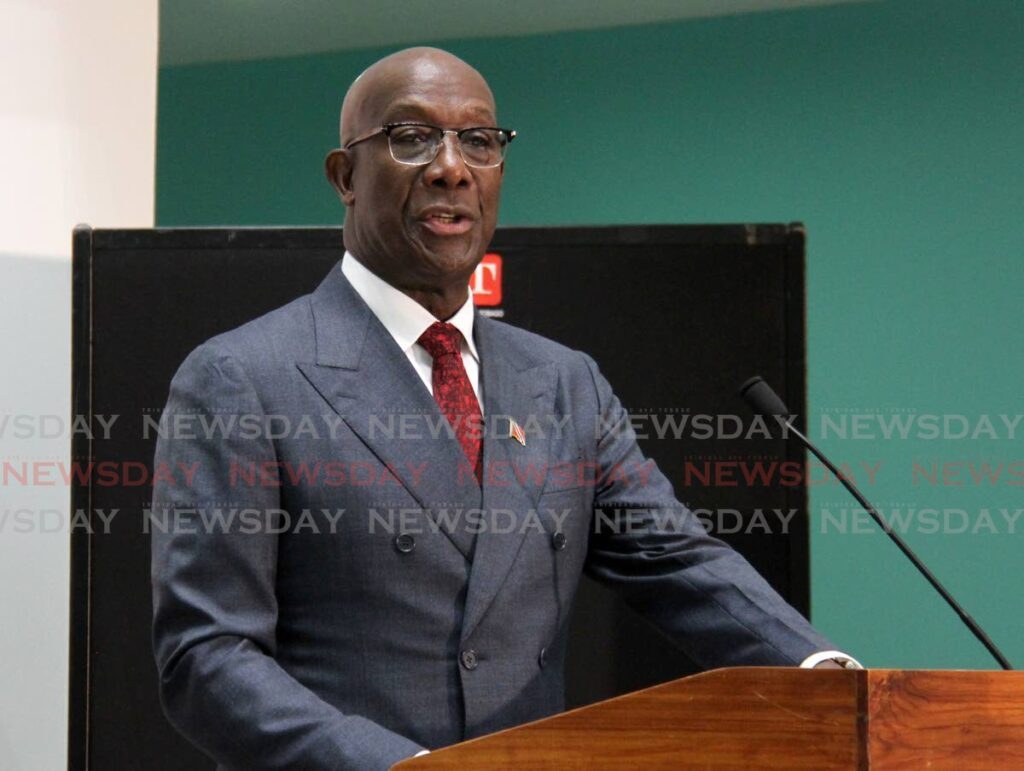Banking on a cashless society

THE PRIME Minister’s call last month for a transition to a cashless society has triggered debate. Some have strongly criticised the idea, while others have expressed support for it. Finance Minister Colm Imbert doubled down on Monday, stating the Government was pressing ahead with its policy notwithstanding.
We believe the Government should.
In some respects, going cashless is an uncontroversial proposition. Who would not want to be able to leave home without the hassle of having to carry a bulky wallet or purse?
Travel to any foreign country and the gap between our infrastructure and the rest of the world is clear. Norway is virtually cashless. In places like the US, UK, Hong Kong, China, Canada and Japan, digital transactions are well on their way to becoming the norm. “Cash Not Accepted Here” signs are increasingly common.
Long before contactless payments emerged in this country, some of our Caribbean neighbours took steps to introduce it. Tourism-based, they also promulgated cashless policies of their own some time ago.
The covid19 pandemic accelerated this transition around the world because people in lockdown had no choice but to turn to online transactions. However, it is worth pointing out that cash is also dirty and plays a role in the spread of viruses and other illnesses. This is a seldom-acknowledged reason to get rid of it.
But going cashless can also bolster productivity. It can increase the ease of transactions, save the time normally devoted to handling money and improve automation.
It can also reduce crime in several ways: businesses with no cash on site cannot be robbed and there is an electronic trail to discourage illicit activity like money laundering.
People believe the flip side to this is the vulnerability of online systems to cyber-criminals. That is certainly the case. As long as there is fear about electronic systems being at risk, people are less likely to buy into the cashless paradigm.
Yet carrying cash also exposes citizens to the risk of being robbed. When transactions are electronic, debit and credit cards can be stopped remotely. Digital paper trails can also result in your getting your funds back. The same cannot be said if you are robbed of cash.
Nevertheless, as appealing as a high-tech society is, there are profound social reasons why the transition will not be as quick and as smooth as some would like.
Cash generates a sense of safety. In a world of great turmoil and uncertainty, people often feel they need a quantity of cash on hand for emergencies. Even the PM, who wants us to go cashless, still carries cash. Many people are happy to go digital with cash as a backup. Socially, we have been trained to have “vex money.”
Meanwhile, the elderly and those on lower incomes use cash more. They are at risk of being left behind by the cashless paradigm.
Government policy must therefore pay due regard to the need for public education and standardisation of platforms to make it easier for people to understand new systems. There should also be transitionary measures in place to ensure the vulnerable are not subjected to needlessly punitive consequences.

Comments
"Banking on a cashless society"